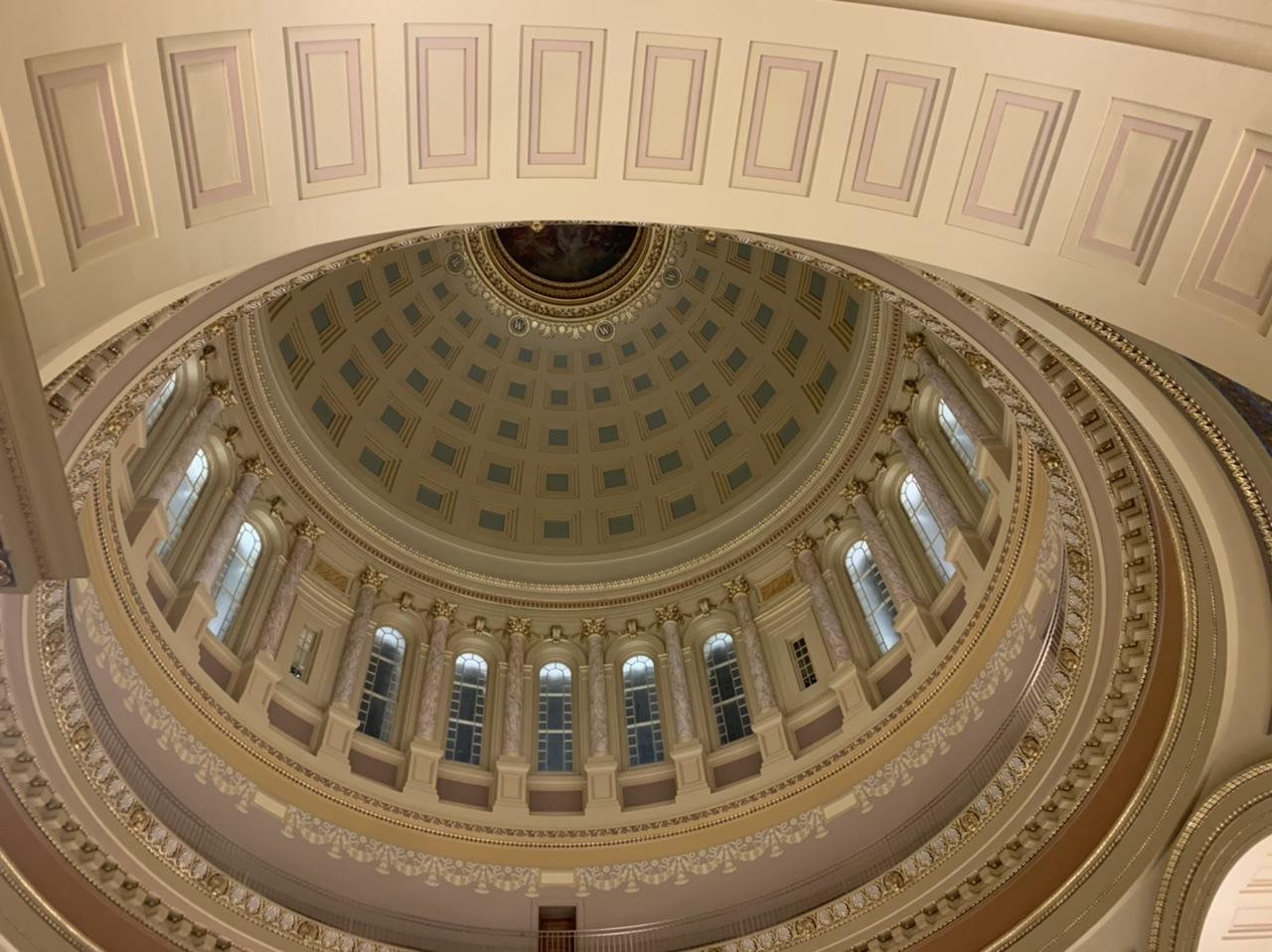The Wisconsin State Legislature approved multiple bills Tuesday that, if passed, would influence the University of Wisconsin System. Several bills out of over a dozen total, which have not yet been signed by Gov. Tony Evers, would impact UW-Madison directly.
One of the bills — Senate Bill 557 — relates to the “investment of certain University of Wisconsin System revenues.” It was first introduced back in September by Rep. John Macco, R-Wis.
Co-Chairman of UW-Madison College Republicans Joe Krantz worked with Macco in the State Assembly. According to Krantz, the UW System currently has a large amount of revenue and funding sitting idle, and this bill will allow the state investment board to invest the money to better the campus communities.
“I think this is something really great for our state as a whole to generate revenue, invest and create more wealth — especially for our university being the largest in the state.” Krantz said. “I think you can provide a lot of opportunities to help grow our large university and make it an even bigger, better place.”
Another bill, Assembly Bill 775, relates to the planning of a new engineering building on UW’s campus.
Rep. Mark Born, R-Wis, who introduced the bill, believes it will help extend the already existing impact the College of Engineering has on the state and beyond.
“Assembly Bill 775 will allow our state to continue being a leader in educating tomorrow’s engineers — meeting the workforce and economic demands for more engineers across our state and nation,” Born said in an email statement to the Badger Herald.
These two bills received endorsement from UW-Madison Chancellor Rebecca Blank. Senate Bill 557, Blank said, would offer “vital flexibility” in the ways UW can manage its capital, which could result in greater returns on investments. Blank said Assembly Bill 775 would provide the funding needed to develop the new engineering building to better the education of engineering students, which she described as “essential to Wisconsin’s future.”
But another pair of bills regarding higher education did not garner Blank’s approval, nor the support of other officials in the UW System.
Senate Bill 409 and Assembly Bill 884 hope to eliminate courses on racism in UW academia. AB 884 states UW “shall not allow instruction to students that promotes race or sex stereotyping in any course or as part of any curriculum and shall not require an employee to attend a training that teaches, advocates, acts upon, or promotes race or sex stereotyping.”
Additionally, AB 884 would allow students to take a course on the U.S. Constitution in place of the required diversity or ethnic studies courses that are a part of general education. Krantz said he hopes this bill will stop professors and peers from putting blame on white students for history, making them feel shameful.
“I think it’s great to teach the actual history of what happened, but you don’t need to push the narrative that white people need to somehow make up for the wrongdoings of the past,” Krantz said.
Debates about the place of “critical race theory” — an academic framework that examines the intersection of social and racial inequality in U.S. institutions — in classrooms and lectures halls have continued in the legislature since last year.
Blank strongly urged Evers to veto SB 409 and AB 884.
“As a university, our aim is to graduate well-rounded, critical thinkers; to teach our students not what to think but how to think,” Blank said in a statement. “UW’s ability to attract and retain the best and brightest faculty, staff and students depends on being an environment where both academic freedom and freedom of speech are core values.”
Krantz acknowledged the severity and damages of U.S. history, but he said he doesn’t believe in singling out of white students, noting he has personally found it “pretty hard” to voice his opinion on certain matters because of his identity.
Hannah Menchhoff, the rapid response director of the Democratic Party of Wisconsin, said in a statement to The Badger Herald that Evers is focused on efforts that will enhance the state’s quality of education, which is the opposite of the legislation being pushed by Republicans.
“While Democrats are focused on improving access and quality of public education, Republicans in the legislature would rather use students as political pawns and slash funding from our schools,” Menchoff said. “While Republicans are just trying to bring divisive political fights to the classroom, Democratic leaders like Gov. Evers are taking action on what actually matters to our students and teachers.”
Earlier this month, Evers vetoed a similar bill to AB 884 that would have banned schools from including topics related to “critical race theory” in their teaching, arguing the bill would prevent schools from incorporating “honest, complete facts about important historical topics,” according to the Wisconsin State Journal.
David Cannon, a UW professor in the department of political science said in an email to The Badger Herald that he finds it very likely Evers will veto the two bills opposed by Blank.


